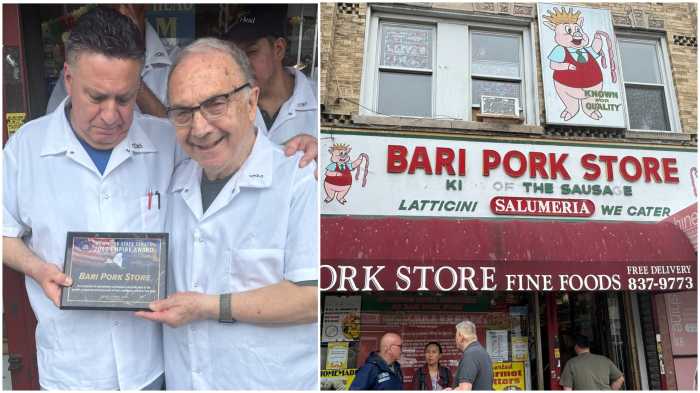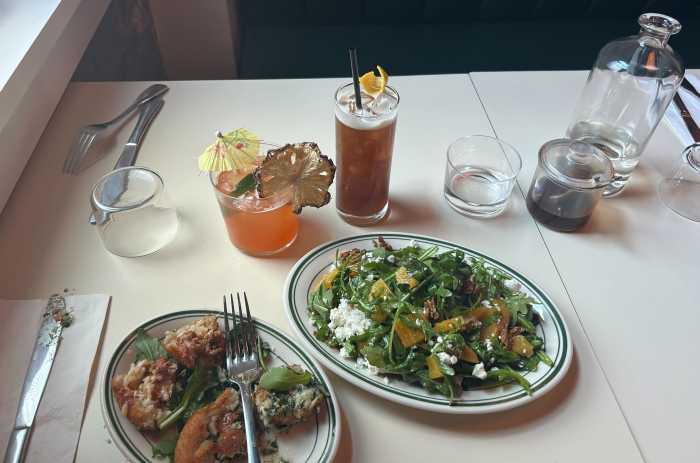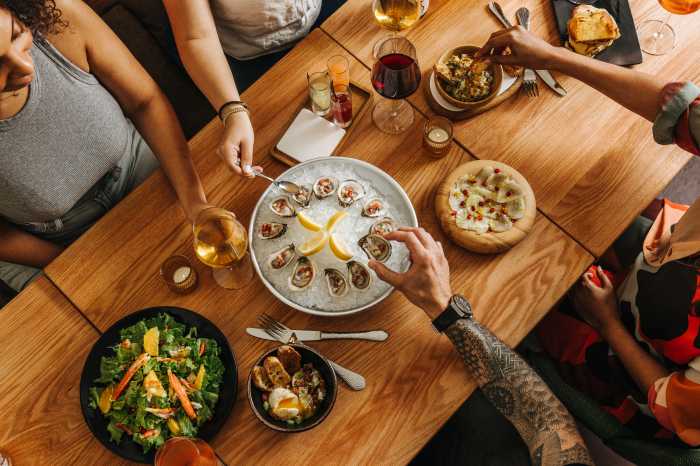Workers at a Park Slope Starbucks location – along with hundreds of their colleagues around the country — filed a petition to unionize with the National Labor Relations Board on Tuesday morning.
At the Starbucks store at Fourth Avenue and 11th Street, 11 out of 15 total employees have signed onto the petition and signed union cards, said barista Victoria Blair. Those workers — along with Starbucks workers from 21 stores in 14 states — penned a joint letter to CEO Laxman Narasimhan, outlining their grievances and demanding recognition of their union.
“Starbucks has made a habit of prioritizing sales and profits over partner safety,” the letter reads. “We have worked through violent threats from customers, unsafe weather conditions, and a global pandemic. Despite our willingness to work regardless of this disregard for our health and safety, we have been met with higher and higher expectations without being given the resources to meet them.”
Blair has worked at the Fourth Avenue location for eight months, but has been with the company for two years, and previously worked at a Starbucks in Arlington, Texas. She emphasized that she likes her job, and finds making drinks and interacting with customers fun and fulfilling – but said her experience in Park Slope has “tainted that somewhat.”
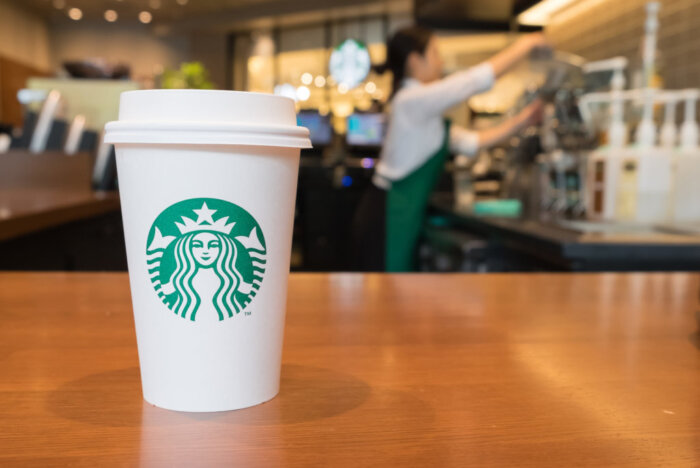
“Management receiving special treatment, hour cuts, unfair policies being enacted…it has made Starbucks a significantly more hostile environment to work at,” Blair said.
Some of those issues, as reflected in the letter, are common at Starbucks stores across the country. Blair said that managers receive extra vacation days and can schedule coverage for themselves so they don’t have to be on the floor. Assistant store managers are hourly, but are still guaranteed 40 hours per week, she added.
“They’re not subject to hourly cuts, they’re not subject to the same disciplinary action regular baristas are,” she said.
Blair makes $18.75 per hour, she said, and made $18.03 per hour when she started in Park Slope. As of last January, minimum wage in New York City is $16 per hour, and according to a Starbucks rep, average pay for baristas is $17.50 per hour. With benefits, the corporation estimates that average total compensation is $27 per hour, though not all employees are eligible for benefits.
In January, employees at the Park Slope store got a small raise, Blair said — about 3-4% of the hourly wage. But a new program called “regulated scheduling” has effectively negated the extra pay, she said.
“We are a pilot store for a new program called regulated scheduling where we’ll receive the same schedule for a certain number of weeks, and it sounds great on paper,” she said. “But the thing that this has effectively done is cancel out the raise, because they’ve been cutting everybody’s hours and making it impossible for people to get more hours for the next four months.”
Blair herself is now working 19.75 hours per week — just under the 20 hours per week she would need to qualify for benefits — including health insurance.
The labor hour cuts also mean fewer people on shift at any given time — up to seven people used to work the morning rush, Blair said, but now a total of eight people might be scheduled to cover the entire day.
“It means we’re performing multiple duties,” she said. “It creates significant stress in my life. With the hour cuts, I no longer am eligible for any of the benefits I started working at Starbucks to receive, so I go into work stressed and tired and exhausted, and then I have to work three or four people’s jobs at a time.”
Starbucks rep Andrew Trull said the company has “continued to work to build weekly schedules that reflect our partners’ preferred hours and support expected customer demand.” The company has improved average hours by 5% per employee and has increased total hourly compensation by almost 50% since 2020, Trull said.
Blair – who helped to organize the union push in Park Slope – said delivering the petition was “very empowering,” and that she was proud of herself and her co-workers for their work.
“But I’ve also got an eye toward the future, because we’ve still got to win the election, we’ve still got to make that happen, there’s a lot more work to be done,” she said.
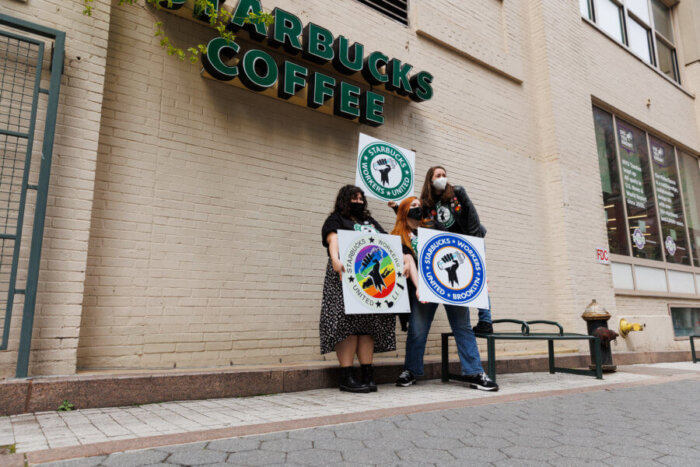
More than 9,500 baristas at 400 stores have unionized since 2021, according to Starbucks Workers United — in 2022, Starbucks employees in Bath Beach became the first unionized location in Brooklyn. The company has been accused of union-busting — but said after Tuesday’s announcement that “there is no evidence Starbucks has, or has used, an ‘anti-union playbook.”
“While we believe our direct relationship as partners is core to our culture and our continued improvements to the partner experience, we respect the rights of partners to organize and reaffirm our aim to negotiate first contracts for represented stores this year,” Tull said in a statement. “We encourage all partners at stores petitioning for representation to get the facts, make an informed choice and ensure their voice is heard by voting in neutral, secret-ballot elections conducted by the National Labor Relations Board. Our aim will be to ensure the process is fair and our partners’ voices are heard.”



